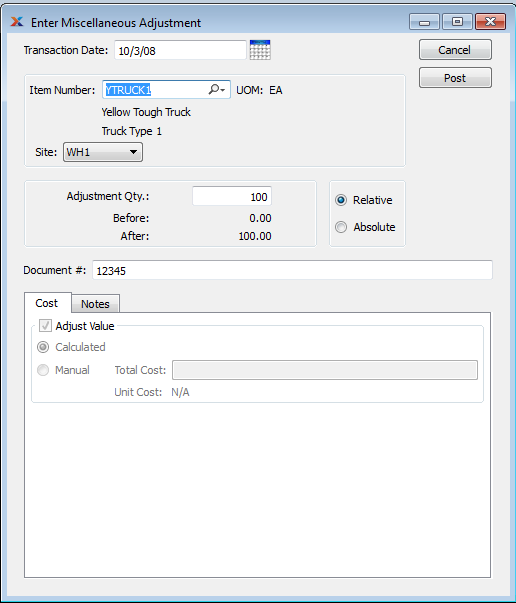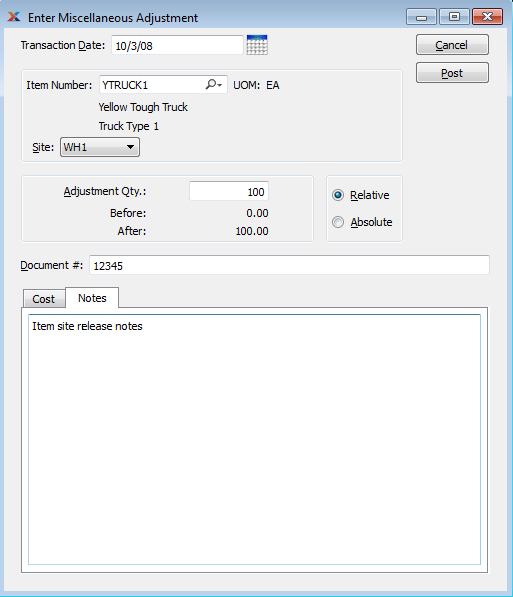
|
xTuple ERP Reference Guide |
To make a miscellaneous adjustment to the quantity on hand (QOH) for an item, go to . The following screen will appear:

Use the Adjustment Transaction utility to handle inventory adjustments not covered by another transaction type—for example, receipt from purchasing, receipt from manufacturing, scrap, etc. For a complete list of inventory transaction types, see Section 1, “ Inventory Transaction Codes”.
When creating an adjustment transaction, you are presented with the following options:
Specify the date you want the transaction to be posted to the general ledger. The current day's date will display by default.
Enter the item number of the item you want to create an adjustment transaction for.
Inventory unit of measure.
Specify the site where the adjustment transaction should be recorded. If an item is located in more than one site, be sure to specify the correct site for the adjustment.
The number entered will adjust the QOH for the specified item. Field accepts positive and negative numbers. To enter a negative number, simply prefix the number with a minus symbol.
Select to make a relative adjustment to the item's QOH. The Before value, which represents current QOH, will increase or decrease relative to the number entered in the Adjustment Qty. field. The new QOH value will appear beneath the After heading. Non-netable QOH is not included in these values.
Select to make an absolute adjustment to the item's QOH. The Before value, which represents current QOH, will be changed to the new value entered in the Adjustment Qty. field. This absolutely new QOH value will appear beneath the After heading. Non-netable QOH is not included in these values.
Creates a user-defined reference for the adjustment transaction. The document reference will be posted with the general ledger (G/L) transaction record when the adjustment is generated. This field may be used for internal tracking and auditing purposes.
The tab will be visible only if average costing is enabled on the Configure Inventory screen. The tab will be enabled only if average costing is the cost method selected for the item site being adjusted. If adjust value is checked then the transaction will affect the value of perpetual inventory using the following costs:
Use the average cost calculation to determine perpetual inventory value and distribute costs for this transaction.
Use the total cost entered to determine perpetual inventory value and distribute costs for this transaction.
To enter notes related to the adjustment transaction, select the tab. The following screen will appear:

When entering notes related to an adjustment transaction, you are presented with the following options:
This is a scrolling text field with word-wrapping for entering notes related to the adjustment.